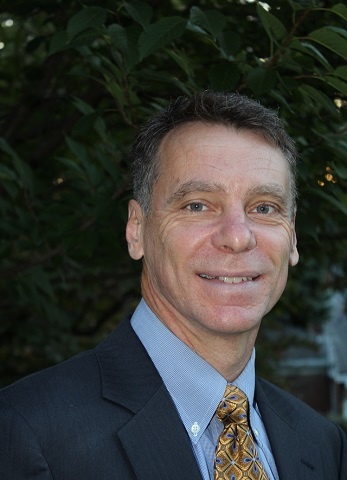For nearly 20 years, Dr. Edwards has been supporting evidence-based reform
Dr. Dan Edwards, president of Evidence-Based Associates (EBA), says he remembers being a lifelong fan of two things: the Red Sox and Multisystemic Therapy (MST). His graduate school seminar on family therapy at the University of Florida was taught by Jim Rodrigue, a protégé of Scott Henggeler, the developer of MST. The required textbook for the course was “Family Therapy and Beyond” (the original book on MST), and so Dr. Edwards just assumed that MST was family therapy when he started out. He knew at that point, he wanted to be involved with MST somehow.

As he finished his doctoral work and started job searching, he saw an ad in the APA Monitor (the trade newspaper for psychologists) for a new company. It was called MST Services (MSTS) in Mt. Pleasant, S.C., and it had just been founded with the goal of providing training and consultation on MST. Dr. Edwards called them and had one question for the president of the company: “Are you guys affiliated with Dr. Scott Henggeler?” Once he confirmed that they weren’t ripping off Scott, he applied, interviewed and had a job. When he joined the MST team in the summer of 1997, MST Services had two consultants and about 25 teams. When he left 10 years later, MSTS had more than 250 teams. Being a part of that explosive growth was an experience he says he will never forget. (That and beating the Yankees in the 2004 American League Championship Series.)
Working with Florida Redirection Project
Dr. Edwards left MST Services in 1997 to help ramp up Evidence-Based Associates (EBA) and to provide Quality Assurance/Technical Assistance on the Florida Redirection Project, an award-winning intervention that safely diverted youth from expensive and ineffective out-of-home placements into evidence-based, community-based programs. While MST was a core component of the Redirection project, it also incorporated Functional Family Therapy (FFT) and Brief Strategic Family Therapy (BSFT)—exposing Dr. Edwards to other Blueprints model programs, which are also based on scientific evaluations and have strong evidence of effectiveness. He hadn’t known much about FFT and BSFT, but quickly learned that each model had its strengths and weaknesses—including that none at that time had a similar infrastructure to MST for data collection and fidelity monitoring. Dr. Edwards considers himself a huge nerd, so he loved building the other models’ capacity to make their data collection as rigorous and robust as MST’s.
Extolling MST's benefits
Today, Dr. Edwards has been with EBA nearly as long as he was with MST Services (10 years) and says he feels blessed to have had great experiences in both organizations. He says that he and EBA “stick their necks out” for MST because it is evidence based, culturally sensitive, cost effective and as impactful as community-based interventions can get. He believes that MST is unique in its intensity and quality of delivery. Even after nearly 20 years in the field, MST is still one of, if not the strongest intervention out there for young people at high risk of system involvement. Yet it only reaches a fraction of the youth and families who would benefit from it, and well, that’s just wrong.
As he has had the opportunity to move into a more administrative and leadership role with EBA, he is all in trying to move the needle in this country toward evidence-based, community-based interventions that make a positive difference on the lives of young people and their families.
At the MST pre-conference at Blueprints on April 11, Dr. Edwards will address “Managing Entity Model: How Florida Scaled MST and FFT (and Saved Millions in the Process...).” This segment will look at how Evidence-Based Associates helped the Florida Department of Juvenile Justice (DJJ) scale up evidence-based programs including MST “from the outside.” He will talk about the challenges in moving from “Promise/Potential to Performance” with the EBPs that were chosen and how DJJ partnered with EBA to overcome them.

